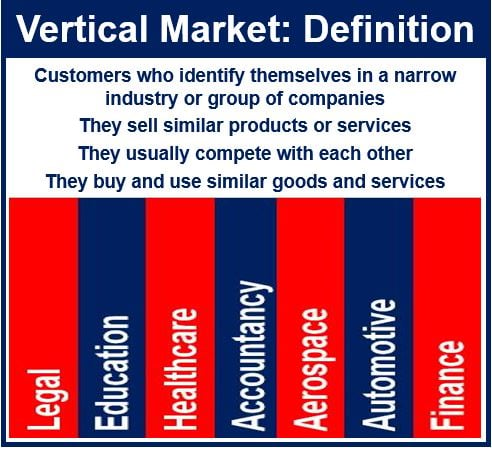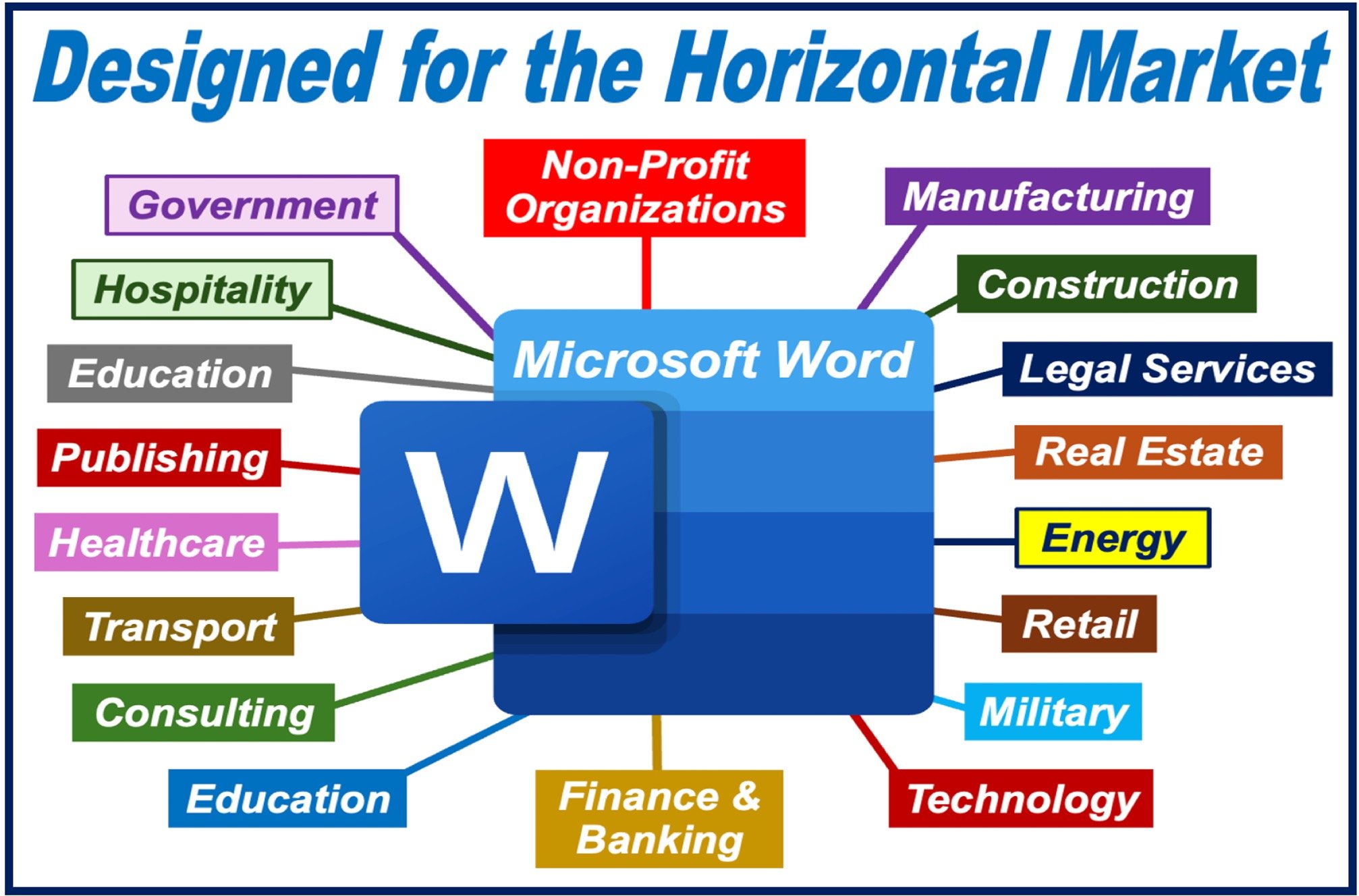A Vertical Market is a niche market, consisting of suppliers and customers for a specific industry, trade or profession. The customers identify themselves in a narrow industry or group of companies, and buy and use similar goods and services.
For example, the laboratory-equipment market is a vertical market, comprising makers of laboratory equipment and buyers such as pharmaceutical company labs, university laboratories, clinics, and hospitals.
Vertical Market vs. Horizontal Market
A vertical market contrasts with a horizontal market, in which the sellers offer a wide range of goods and services to a broad spectrum of customers, including adult males and females, households, children, companies and other organizations.

In many cases, vertical market refers to a small group within a bigger industry setting, with suppliers offering goods and services that are directly related to the consumers, who are considered part of the same industry.
Companies that just make payroll software for start-up Internet businesses operate in a vertical market. A software firm’s division that makes a word-processing software, such as Microsoft’s Word, which can be used across all industries and households, is in a horizontal market.

Companies that operate within any given vertical market tend to be very similar, because their objectives are to solve the same or nearly identical problems.
Vertical markets are usually highly competitive, with suppliers pursuing the same types of customers and offering products and services that do very similar things.
Vertical Market Suppliers and Consumers Part of the Same Industry
A company that specializes in providing fighter jet wheels works in a niche within the aerospace industry.
This company will buy goods and services from aerospace companies that specialize in supplying products and services to fighter jet makers, i.e. both the supplier and consumer belong to the same niche within an industry.
Many Vertical Markets
There are literally hundreds of vertical markets, such as finance, automotive, aerospace, healthcare, legal, etc. These verticals can be broken down into finer subcategories. For example, within education, you have teachers, students, and non-teaching staff who work in schools.
A department within a company may focus on a vertical market. The mortgage department of a bank focuses just on individuals wishing to buy a home – that is a vertical market, while all the bank’s combined departments would be considered a horizontal market.
Advantages of Vertical Markets

Customers may prefer vertical markets because they will get products and services that are tailor-made for their requirements.
Marketing organizations like vertical markets because they can create one campaign that works for all companies within one niche.
For the supplier, to focus on a vertical market means it can become super-specialized in one area.
The more specialized you become, the less competition there tends to be. Your customers are generally willing to pay a premium for your product or service.
Disadvantages of Vertical Markets

The main disadvantage of a vertical market is that your client base is much smaller. This contrasts with a horizontal market, where the sky’s the limit on how many different goods and services you can sell, or range of customer types who might buy (vertical markets are generally defined by the type of customer rather than by the type of product or service).
There is also the risk of putting all your eggs in one basket. If that niche shrinks, you have no other market to compensate for the loss.
Imagine a company that specializes in making train-driver gloves. It will be in serious trouble when railway companies start replacing their trains with automatic, driverless ones.
Shopify.com says the following about this type of market:
“A vertical market refers to a narrow industry group that shares a commonality—typically, a customer niche or similar products and services. . Companies that operate in one or more verticals may sell just one product, or offer multiple services to a particular audience.”
Video – What is a Market
This video, from our sister YouTube Channel – Marketing Business Network – explains what a “Vertical Market” is using easy-to-understand language and examples:
